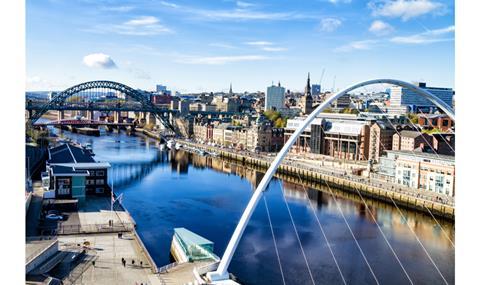
A “nonsensical” charging clean air zone (CAZ) could wreak economic damage on Tyneside and should be ditched in favour of a toll system on three bridges over the River Tyne, council leaders have warned.
As a public consultation on proposals to improve the region’s air quality began this week, Newcastle, Gateshead and North Tyneside council chiefs warned that a charging CAZ could have a “significant negative impact”.
Modelling by the three councils has shown that a charging CAZ could cost the region £140m over five years, due to vehicle upgrading costs, its impact on small businesses and the time lost by drivers taking longer routes to avoid the charging area.
The three councils argue that their preferred option to impose tolls on the Tyne, Redheugh, and Swing bridges would help the region improve air quality without penalising local businesses and low income citizens.
Read more
- Greater Manchester proposes largest clean air zone outside of London for 2021
- Learn all about Scottish clean air zone plans at free roadshow
- Birmingham creates new website to help fleet operators with clean air zone compliance
Under the proposed toll system, charges would apply to all lorries, vans and cars regardless of their emissions, with lorries charged around £3.40 per journey and vans and cars around £1.70 per journey. Buses and taxis would be exempt from charges.
In comparison the proposed CAZ would see all non-Euro-6 lorries, buses and coaches pay around £50 per day with vans, cars and taxis charged around £12.50 per day.
Consultation respondents will also be invited to comment on other potential measures including a low emission zone in Newcastle city centre.
Gateshead Council chief executive Sheena Ramsey warned that a CAZ would hit low-income households, areas of high deprivation, and small businesses.
Newcastle City Council leader Nick Forbes added that a CAZ could have "unforeseen consequences" and was an "utterly nonsensical approach", arguing that the toll system would offer “a more equitable” solution.
Let your views be heard
A spokesperson for the three councils urged local people and businesses to respond to the consultation.
He said: “In relation to the potential economic impact of a charging CAZ D - the government's preferred approach - the (councils’) analysis indicates that this could be around £140m over five years.
"It is important to note that while this amount does include direct costs, such as the cost of upgrading vehicles, it also includes other estimates of indirect costs, for example, by quantifying the value of time people would lose through choosing to make longer journeys, or cancelling journeys to avoid a charge.
"It is really important that people take part in the consultation starting next week so we can understand the impact of different options on them, their families and their businesses and use this information in our discussions with government."
Image: Shutterstock













